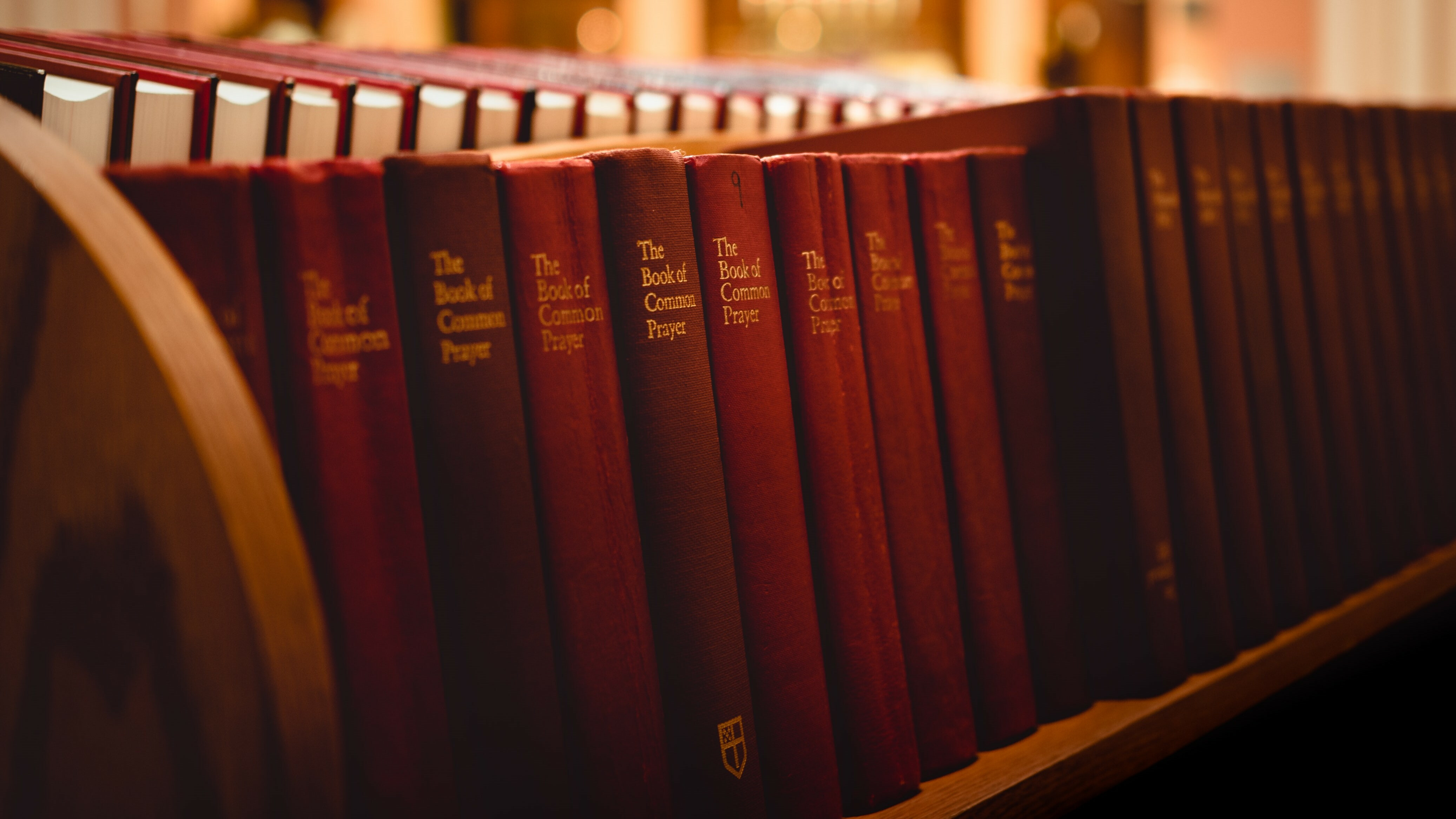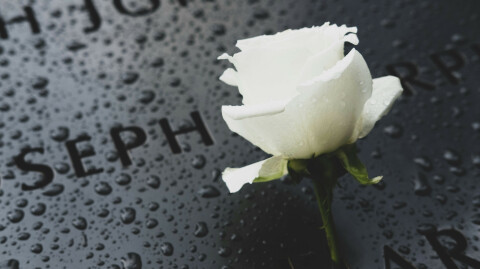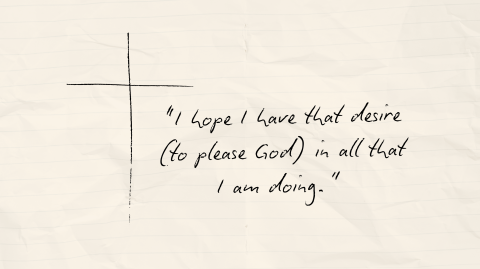TLDR: Modern Christianity no longer has room for sin, yet without a clear awareness of our brokenness, we devalue Christ’s sacrifice and fool ourselves into believing a humanist utopia that doesn’t really exist.
One of my favorite prayers in the Rite I liturgy goes like this:
“We do not presume to come to this thy Table, O merciful Lord, trusting in our own righteousness, but in thy manifold and great mercies. We are not worthy so much as to gather up the crumbs under thy Table. But thou art the same Lord whose property is always to have mercy. Grant us therefore, gracious Lord, so to eat the flesh of thy dear So Jesus Christ, and to drink his blood, that we may evermore dwell in him, and he in us.” Amen.
This prayer is said after the fraction (breaking of the bread) but before the Communion. According to the Commentary on the American Prayer Book, the prayer, “incorporated phrases and concepts from the Liturgy of Saint Basil, Mark 7:28, two Gregorian collects (851 and 1327,) John 6:56, and the writings of Saint Thomas Aquinas (Summa Theologica, Part 3, Question 74, Article 1.)” (Hatchett, 382.) The prayer was most likely composed by Thomas Cranmer in 1548 for inclusion in the first Book of Common Prayer in 1549, and was further amended in the second Prayer Book in 1552.
Mark 7:28 narrates the story of the Syrophoenician woman whose little daughter needed healing. “She begged him to cast the demon out of her daughter.” (v. 27.) Jesus responds with a phrase which is rather difficult for us, “Let the children be fed first, for it is not fair to take the children’s food and throw it to the dogs.” (v. 28.) By this, Jesus meant that his mission was primary for Israel, and from Israel to the nations. She answered, “Sir, even the dogs under the table eat the children’s crumbs.” (v. 29.) Of course, we know that Jesus healed the little child, amazed at the foreigner’s faith. The prayer states, “We are not worthy so much as to gather up the crumbs under thy Table.” We are as ethnically distant from Jesus as this poor woman, and yet, we have confidence in coming to him for mercy because we know that his abundant compassion is freely given even to non-Judeans, like the Gentiles and us in the 21st century.
John 6:56 states, “Those who eat my flesh and drink my blood abide in me, and I in them.” We see the same theme in the prayer: “Grant us therefore, gracious Lord, so to eat the flesh of thy dear Son Jesus Christ, and to drink his blood, that we may evermore dwell in him, and he in us.” The words “abide” and “dwell” have the same meaning. When we receive the body and blood of Jesus, we are incorporated into Christ himself. “We dwell in him and he in us.” Paul affirms that through the resurrection of the Messiah, believers are “IN Christ!”
In the theology of Saint Thomas Aquinas, Presumption is a grave sin. To presume one’s own salvation is arrogant and haughty. Presumption is both “an idea that is taken to be true, although it is not known for certain, and a behavior perceived as arrogant, disrespectful, and transgressing the limits of what is permitted or appropriate.” (Oxford Dictionary online.) Presuming our own righteousness, coming to the Lord’s Table lacking a proper act of contrition, is disrespectful to God because it takes his mercy for granted. The bread and wine we eat and drink at the Lord’s Table is indeed the body and blood of Jesus (ST, Q74, A1) and believers must prepare accordingly to receive them. For Aquinas, a proper preparation for the reception of Holy Communion requires an acknowledgement of sin and a petition for forgiveness. This is why the prayer affirms that we come to the table not because we trust in our own righteousness, but because we count on God’s great mercies.
The idea that it is within God’s property “always to have mercy” is common in many of the collects. There are too many examples to mention here. We only have to read the opening phrase of many collects, (called the Ascription or what the collect tells us about God,) to see this theme repeated over and over again. God is merciful and full of compassion. He does not treat us as we deserve to be treated, but rather as a loving father treats his beloved children. It is this mercy and compassion that gives us the confidence to approach the altar of our Lord with repentant hearts.
Sadly, this prayer is seldom used in the Church today. The 1979 Prayer Book decided not to include this prayer in its modern versions of the Holy Eucharist, relegating it exclusively to Rite 1. The problem for many is the penitential nature of the prayer. In modern theology, the relationship between God and humanity is collaborative rather than dependent exclusively on God. We want to affirm the inner goodness of humanity and our standing as the image of God. This is often called a “high anthropology,” or a higher view of humanity. Our standing before God has risen considerably with the advent of humanism and psychology. We cooperate in God’s mission for the world. For some, this also means that we somehow cooperate in the act of salvation. Therefore, we must emphasize what is sacred and holy in humanity, rather than the brokenness and sinfulness which is at the very heart of our human condition. Some have gone as far as saying that the modern mind has no room for the idea of sin.
I have a much lower anthropology. I affirm that we are the image of God, this is non-negotiable. But I also affirm that there is a propensity for self-directed behaviors at the center of the human heart. When left to our own devices, we all do what is easiest and what benefits us directly. This doesn’t mean that there is nothing good in us, but it does mean that we are in constant need of God’s forgiveness and mercy. We miss the mark often, but the real beauty of our faith is that God is always willing to forgive us and to restore in us whatever our sinfulness destroys or corrupts. The point is not our sinfulness, but his eternal and unmerited mercy and compassion.
When we eliminate sin and the necessity of God’s forgiveness, we devalue the sacrifice of Christ on the cross, and we fool ourselves into believing in a humanist utopia where the almighty “I” rests at the center of the universe. I don’t know about you, but I am not interested in a religion where the “I” is elevated to an executive function. We don’t call the shots! Rather, we are broken followers, and there is only one Messiah.
Blessings to you,
Fr. Roman+





